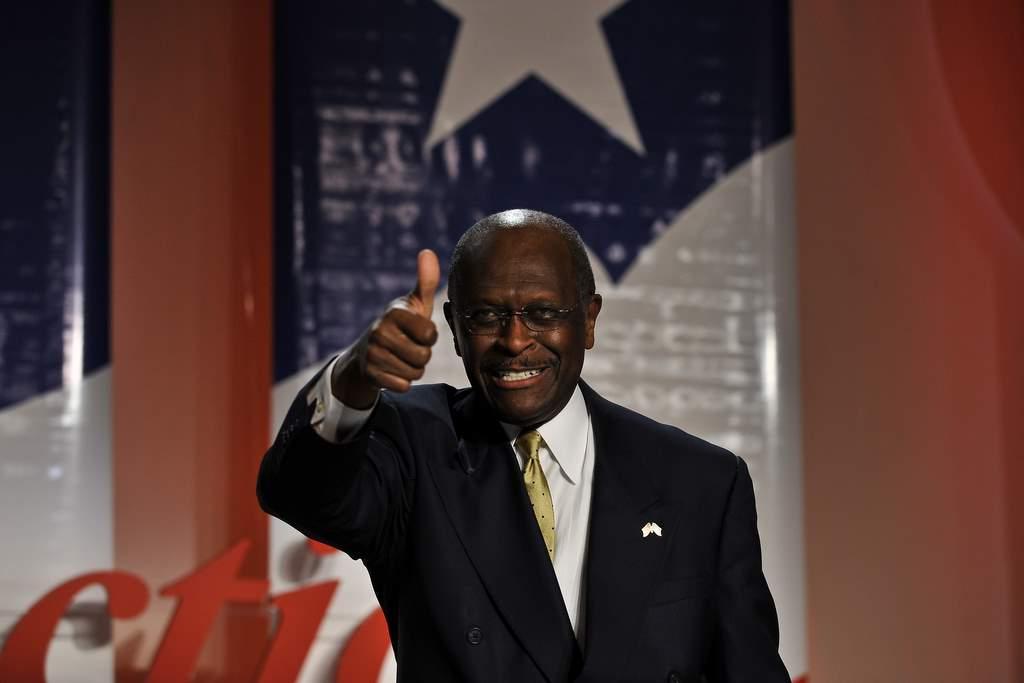Herman Cain remains steady in polls despite sexual harassment allegations
US Republican presidential hopeful Herman Cain gives the thumbs up after addressing the Family Research Council’s Values Voter Summit in Washington on October 7, 2011.
Presidential candidate Herman Cain remains neck-and-neck with former Massachusetts governor Mitt Romney for the lead in the Republican primary, despite the recent emergence of allegations of sexual harassment against the businessman and restaurant lobbyist.
In a Washington Post/ABC poll conducted over the first four days following revelations of the allegation, with Romney at 24 percent, and Cain at 23 percent. Texas governor Rick Perry is in a distant third, with 13 percent, with former Speaker of the House Newt Gingrich at 12 percent.
A majority of likely Republican voters said that the allegations against Cain were not serious, and that it would not make a difference in who they support for the GOP nomination.
Just 23 percent of Republican voters believe that the scandal would make them less likely to vote for Cain, and 69 percent believe it will make not difference.
Cain might disagree with the notion that the allegations against him are 'not serious.'
The Washington Post reported today that the Cain campaign is considering taking legal action against Politico, for reporting that he had been charged with sexual harassment more than a decade ago.
Politico’s Executive Editor, Jim VandeHei said in a statement:
“We have heard nothing from the Cain campaign. We stand confidently behind every story Politico reporters have written on the topic."
Cain has denied that he had sexually harassed any women, but recalls one settlement with a female employee as part of an employment termination agreement.
However, 69 percent of GOP voters — 71 percent of Romney supporter and 66 percent of Cain supporters— said that there's a chance that they will change their minds before the nomination.
An Iowa poll in the Des Moines Register shows that two-thirds of Iowa Republicans who earn less than $50,000 a year, believe they personally would be better off or in the same situation under Herman Cain’s 9-9-9 tax plan.
According to Slate:
Under 9-9-9, poor people pay higher taxes. Families making between $20,000 and $50,000 would see their annual tax bills go up by more than $3000. Families making more than $1 million would get tax cuts averaging out at $581,000.
“The larger point is that people don’t really understand what the 9-9-9 plan actually is, and they’re assuming incorrectly that they may not pay one or any of these taxes,” said Joe Rosenberg, a research associate for the Tax Policy Center, a group based in Washington, DC.
